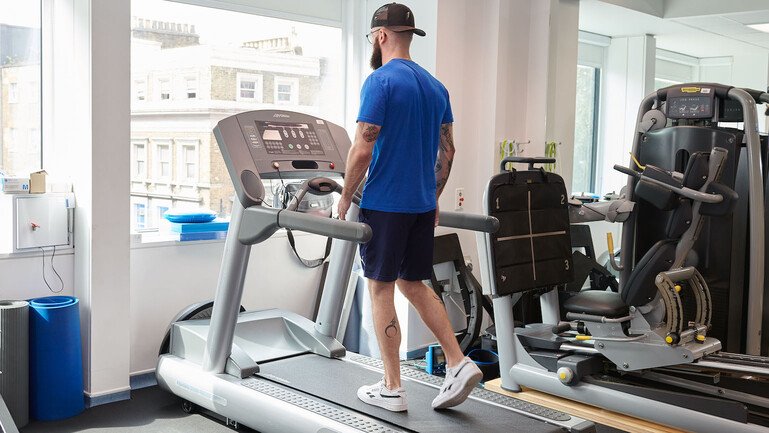How does exercise help with depression?
Many have asked this question: “How does exercise help with depression?” , however, numerous studies have demonstrated the profound impact of exercise on mental health, ranging from providing immediate mood boosts to effectively alleviating chronic depression.
For some individuals, the antidepressant benefits of physical activity rival those of traditional treatments such as therapy or medication.
However, according to Jonathan Roiser, a Professor of Neuroscience and Mental Health at University College London, exercise is rarely prescribed despite its therapeutic potential.
In an effort to address this gap, Professor Roiser has embarked on a new research project funded by a Wellcome Mental Health Award. The aim of this project is to investigate the mechanisms through which physical exercise exerts its antidepressant effects.
To achieve this goal, Roiser and his research team will conduct one of the largest trials ever conducted on depression and physical activity.
Over the course of eight weeks, they will monitor changes in the brain systems responsible for processing reward and effort in 250 participants diagnosed with depression.
By doing so, they hope to gain a deeper understanding of how exercise, when administered by trained coaches, can effectively mitigate depressive symptoms.
Their hypothesis posits that physical activity may address depression by modulating motivational processes in the brain, which are often overlooked by existing mental health interventions.
The findings of this study have the potential to revolutionize depression treatments, offering new insights and avenues for individuals struggling with this condition.
Exploring the Relationship Between Exercise and Depression
Various studies have highlighted the positive impact of different forms of physical activity on mental health, encompassing aerobic exercises like running and swimming, as well as anaerobic exercises such as weightlifting and high-intensity interval training.
However, Professor Roiser’s research will specifically investigate the antidepressant effects of aerobic exercises, which have demonstrated the most robust outcomes in previous studies.
Participants aged 18 to 65 will engage in hour-long group gym sessions three times a week, tailored to their individual fitness levels and guided by trained instructors. One group will focus on aerobic exercises, while a second control group will concentrate on stretching and relaxation techniques.
According to Roiser, the findings of this study will offer fresh insights into the underlying mechanisms. “By conducting this meticulously controlled experiment, we anticipate being able to draw significantly stronger conclusions compared to many previous studies in this area,” he explains.
The team will assess each participant’s overall depressive symptoms and anhedonia symptoms, which involve a loss of interest or pleasure in previously enjoyable activities. This evaluation will occur before, during, and after the trial through weekly questionnaires.

According to Roiser, understanding the cognitive processes involved in motivation is crucial. He illustrates this with an example: “When individuals become motivated, they often need to make decisions and exert effort to achieve their goals. Consider cooking a new dish: you must decide what to cook, find a recipe, gather ingredients, and then engage in the physical effort of cooking.
For someone experiencing depression, even contemplating these steps can feel overwhelming. The perceived level of effort seems insurmountable, leading to potential abandonment of the task.”
However, the research extends beyond examining psychological processes. The team will utilize brain scans, blood samples to assess immune and metabolic changes, and positron emission tomography to measure alterations in dopamine levels—a fundamental aspect of the brain’s reward system.
Roiser emphasizes that this study requires a collaborative effort, stating, “It’s not feasible for any single individual to conduct this study alone—it truly requires a team approach.”
His team of experts, including individuals with firsthand experience of depression, will play integral roles in co-designing the study, overseeing the trial, devising the exercise intervention, and evaluating its effects on participants. “Interdisciplinary collaboration is essential in this work because no one person can possess expertise in all these areas,” he concludes.
As the world grapples with a mental health crisis affecting approximately 280 million individuals living with depression, there is a pressing need to enhance our understanding of existing treatments.

Jonathan Roiser, Professor of Neuroscience and Mental Health at University College London, highlights the importance of comprehending how exercise contributes to alleviating depression. This understanding could not only offer a new avenue for treatment but also enhance current therapeutic approaches and guide the development of novel interventions.
Roiser emphasizes the limitations of current treatments, noting, “There’s a tendency to lump everyone with a diagnosis like depression together… and so we’ve ended up with treatments that don’t work for everyone.”
His research aims to showcase to healthcare professionals the value of exercise as a prescription—a cost-free and accessible option with multifaceted benefits extending beyond mental well-being to physical health.
Roiser’s excitement about the research lies in its potential to identify individuals who may derive the greatest benefit from exercise.
He explains, “There’s a tendency to lump everyone with a diagnosis like depression together and think that all of the mechanisms are the same in all individuals… it’s quite likely that physical activity will be really helpful for some people and not so helpful for others.”
Through this study, Roiser and his team seek to discern which individuals derive the most benefit from exercise as a treatment and whether these outcomes correlate with specific changes in brain processes.
This knowledge could lead to more targeted and personalized interventions for managing and resolving mental health conditions.
“That’s my real hope,” says Roiser, “that eventually, we’ll be able to target treatments more strategically and personalize them at a much earlier stage—which could make a big difference in clinical practice.”
Jonathan Roiser, a Professor of Neuroscience and Mental Health at the UCL Institute of Cognitive Neuroscience in London, UK, boasts a rich academic background. With over 150 published papers, he brings two decades of dedicated research experience in depression, with a specific focus on reward processing.
As the principal investigator of a project funded by Wellcome, Roiser leads efforts to decipher the underlying mechanisms responsible for the antidepressant effects of physical activity.
This project, supported by Wellcome’s Mental Health Award titled ‘Looking backwards, moving forward – understanding how interventions for anxiety, depression, and psychosis work,’ represents a significant endeavor in advancing our understanding of depression treatment.
Roiser’s expertise in this area is further demonstrated by his previous Wellcome-funded project, which delved into the intricacies of motivation and its psychological processes, particularly exploring how these processes might be impacted in individuals with depression.
His comprehensive approach to research underscores his commitment to unraveling the complexities of mental health conditions and paving the way for more effective interventions.
Source: welcome.org

A graduate of Computer Science and Information Management Technology. Diploma – Caregiving, Certificates – Dementia and Diabetes Awareness and Management. A researcher, blogger, songwriter, singer and acoustic guitarist. Born in an environment where natural talents such as healing are imparted at our natural birth. This natural talents of healing is the result of our genetic inheritance and the training from family environment.














